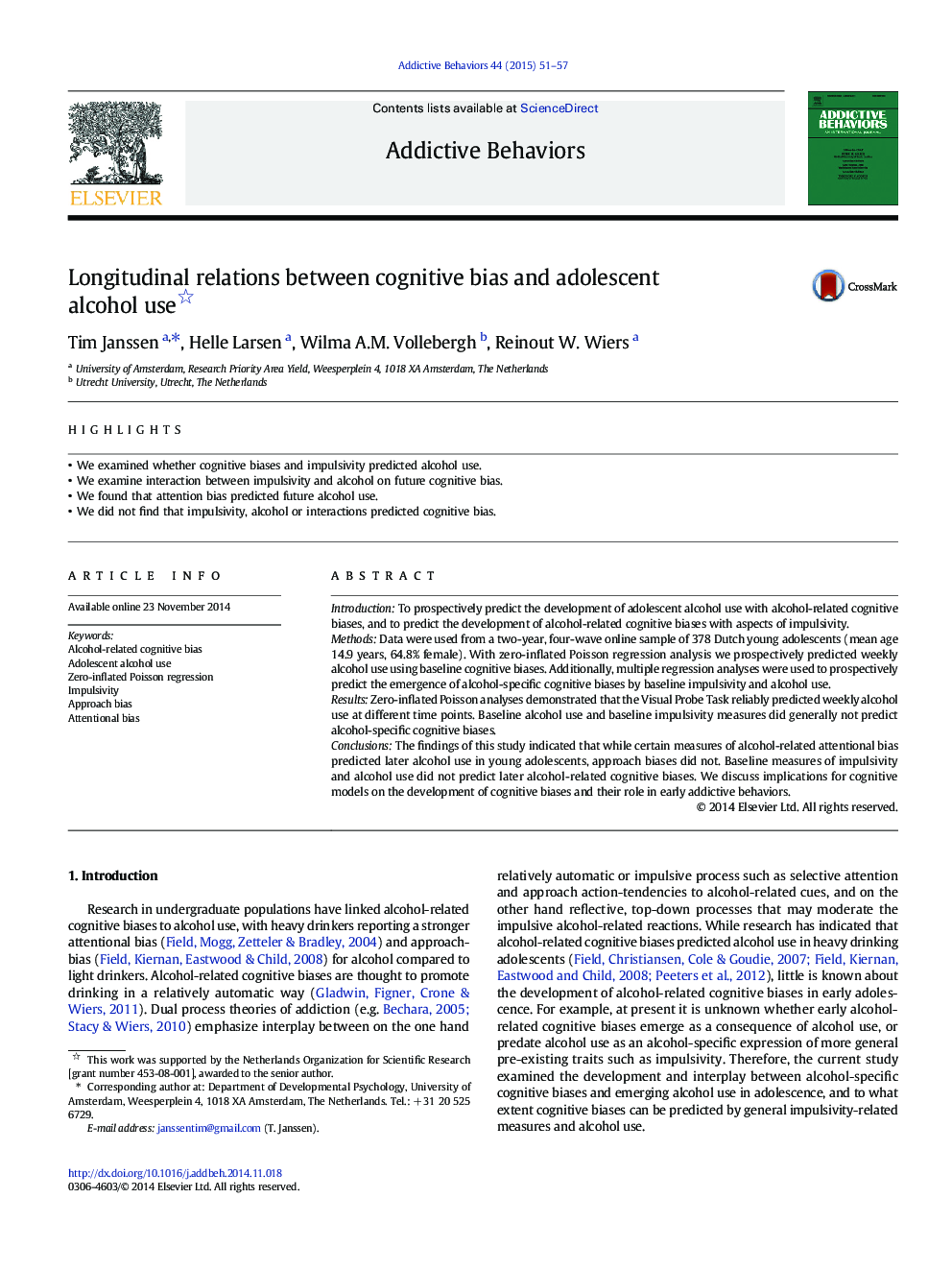| کد مقاله | کد نشریه | سال انتشار | مقاله انگلیسی | نسخه تمام متن |
|---|---|---|---|---|
| 898704 | 1472527 | 2015 | 7 صفحه PDF | دانلود رایگان |
• We examined whether cognitive biases and impulsivity predicted alcohol use.
• We examine interaction between impulsivity and alcohol on future cognitive bias.
• We found that attention bias predicted future alcohol use.
• We did not find that impulsivity, alcohol or interactions predicted cognitive bias.
IntroductionTo prospectively predict the development of adolescent alcohol use with alcohol-related cognitive biases, and to predict the development of alcohol-related cognitive biases with aspects of impulsivity.MethodsData were used from a two-year, four-wave online sample of 378 Dutch young adolescents (mean age 14.9 years, 64.8% female). With zero-inflated Poisson regression analysis we prospectively predicted weekly alcohol use using baseline cognitive biases. Additionally, multiple regression analyses were used to prospectively predict the emergence of alcohol-specific cognitive biases by baseline impulsivity and alcohol use.ResultsZero-inflated Poisson analyses demonstrated that the Visual Probe Task reliably predicted weekly alcohol use at different time points. Baseline alcohol use and baseline impulsivity measures did generally not predict alcohol-specific cognitive biases.ConclusionsThe findings of this study indicated that while certain measures of alcohol-related attentional bias predicted later alcohol use in young adolescents, approach biases did not. Baseline measures of impulsivity and alcohol use did not predict later alcohol-related cognitive biases. We discuss implications for cognitive models on the development of cognitive biases and their role in early addictive behaviors.
Journal: Addictive Behaviors - Volume 44, May 2015, Pages 51–57
